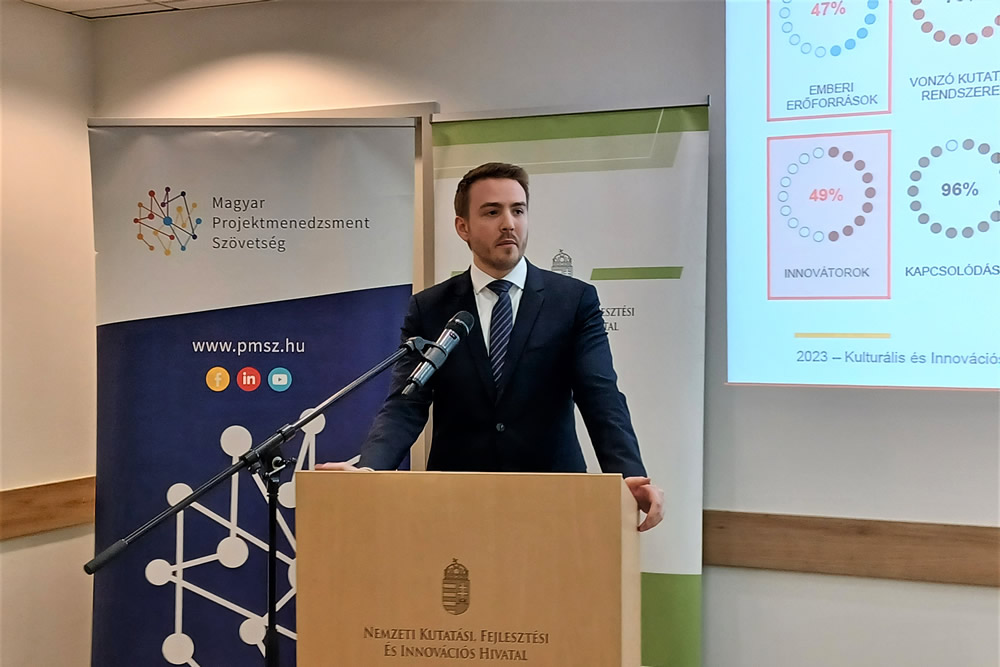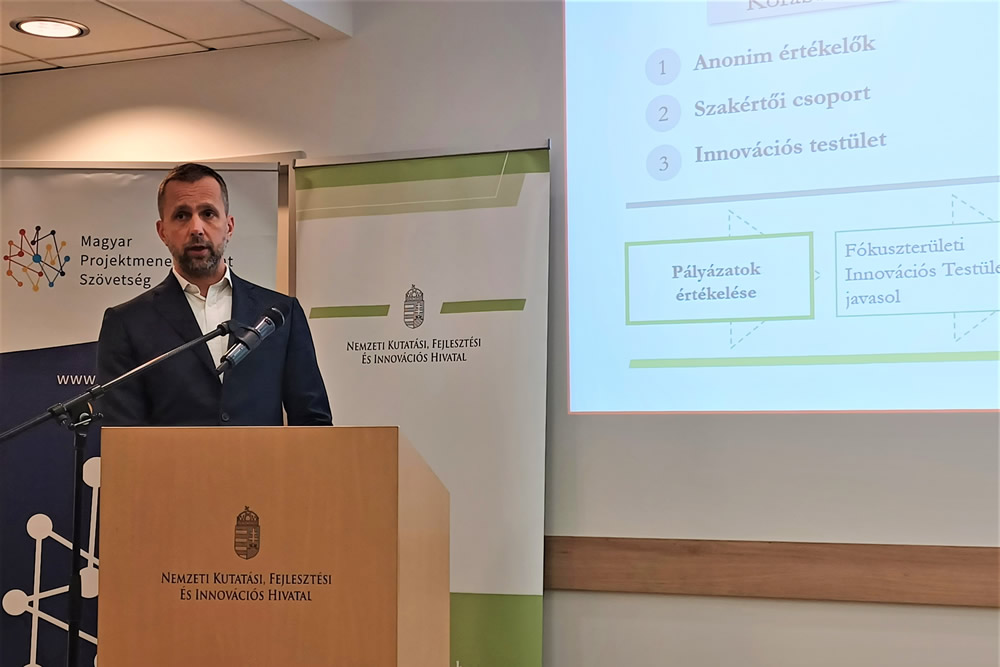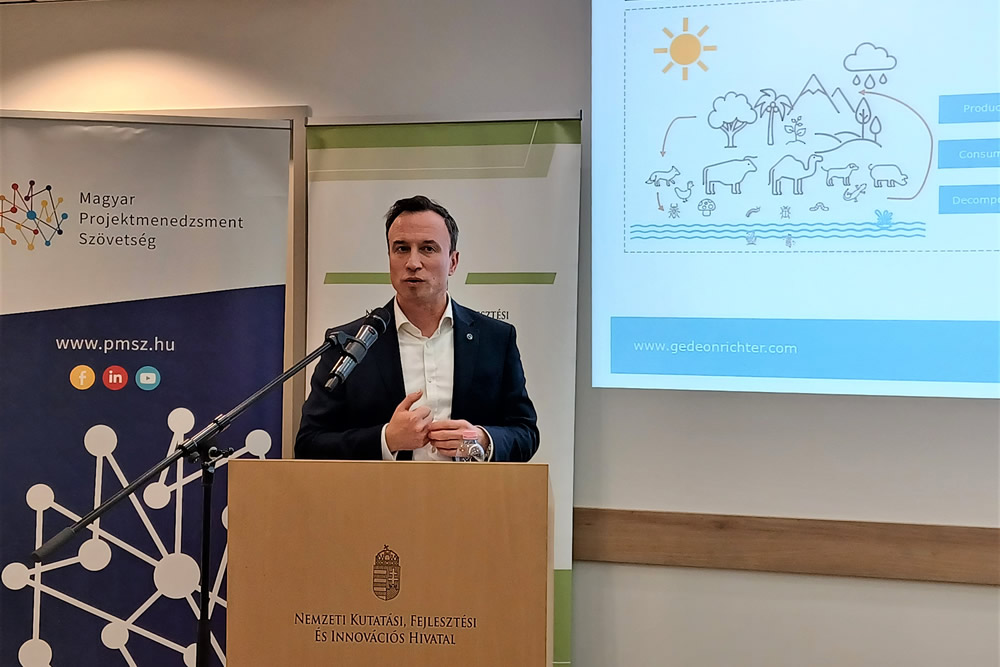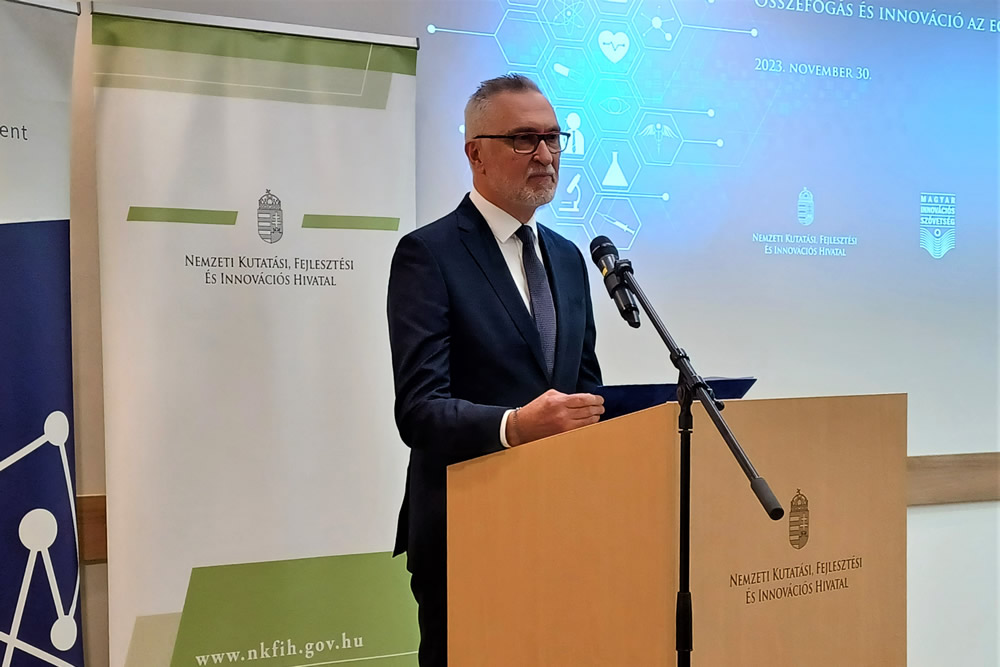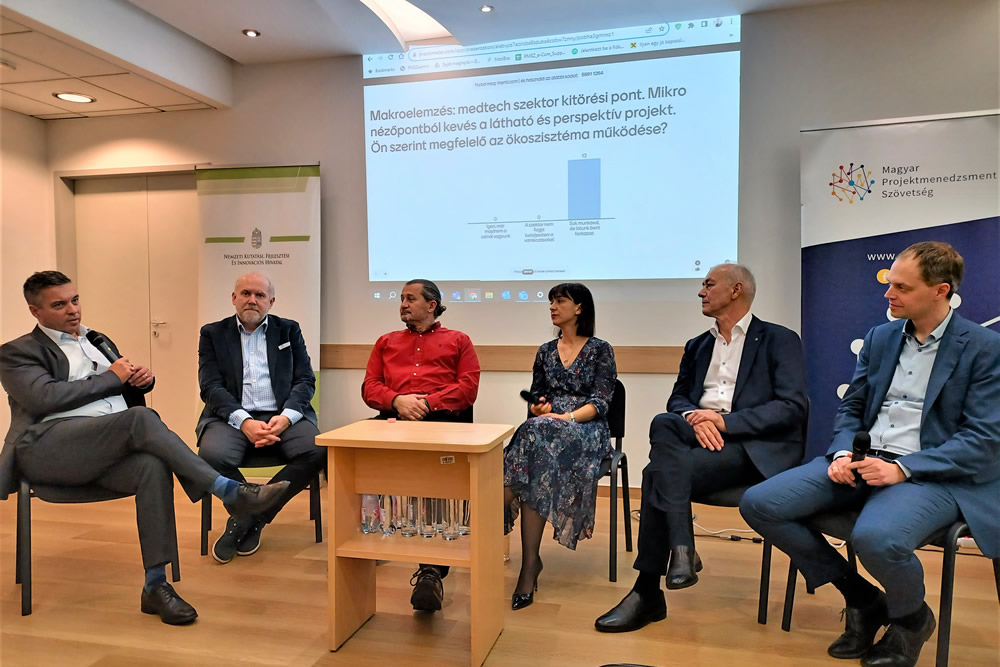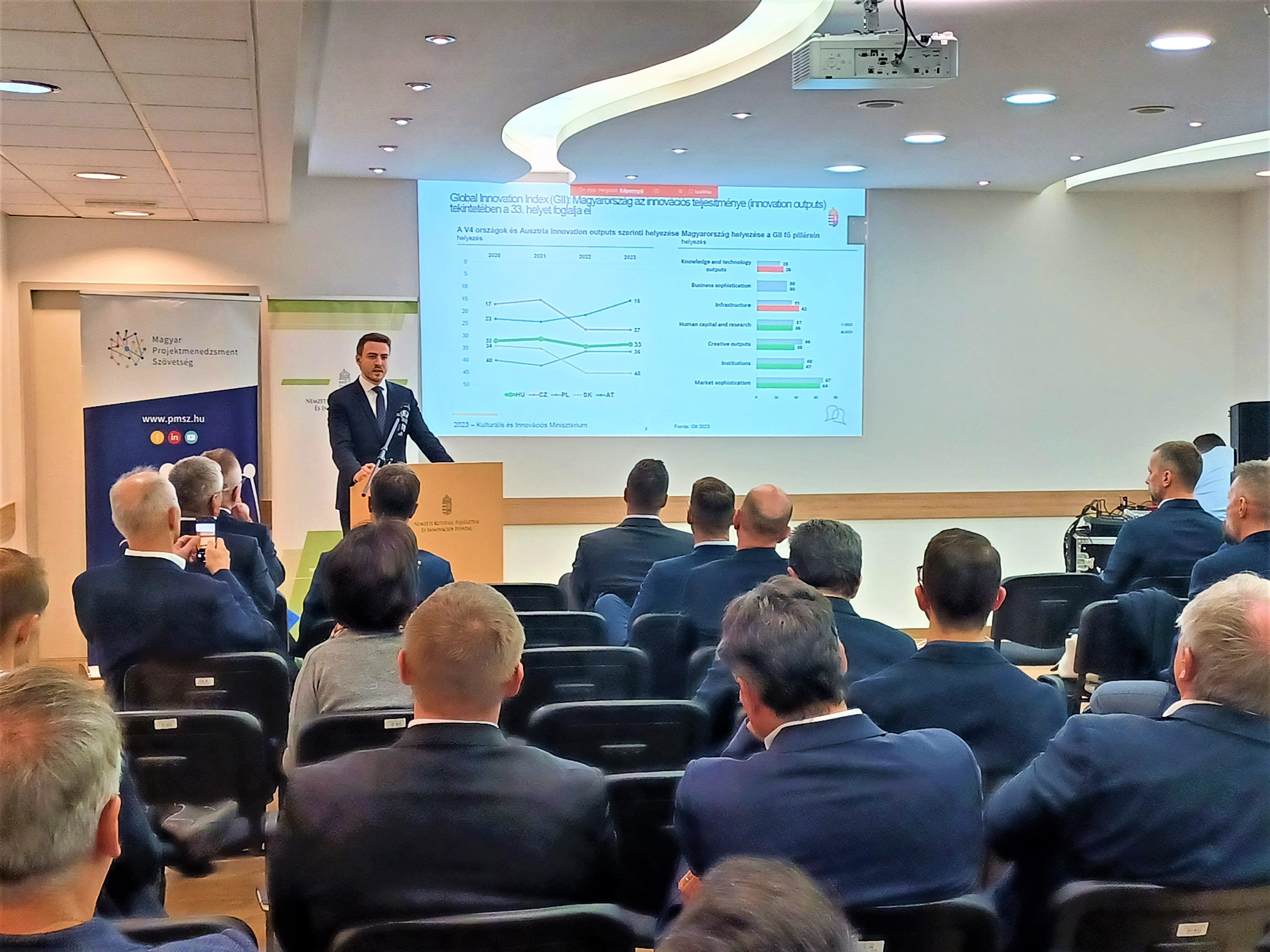This was the topic of a conference organised jointly by the National Research, Development and Innovation Office and the Hungarian Project Management Association on 30 November 2023 in Budapest.
How does the state and policy encourage further achievements by actors in the health sector, be they businesses, research institutions or university-industry collaborations? What are the opportunities today in domestic and international project funding? What path leads to the success of applicants who, by developing new and innovative solutions, benefit the entire society? These were the questions addressed at the conference, which brought together businesses, research institutions, professional organisations and innovation policy makers for an informal and constructive exchange of views. The Hungarian Association for Innovation also contributed to the conference by professional support.
László Bódis, Deputy State Secretary for Innovation of the Ministry of Culture and Innovation, presented the policy efforts aimed at linking universities, research institutions and the economy, which are also reflected in the strategic package of actions of the John von Neumann Programme. On future ambitions, he said that Hungary’s goal is to be among the top 10 innovators in Europe by 2030 and among the top 10 in the world by 2040. To this end, a number of measures have been and are being taken, ranging from the results-based renewal and internationalisation of the former Eötvös Loránd Research Network (ELKH), now Hungarian Research Network (HUN-REN), to the renewal of the logic of RDI calls for proposals, the development of science and innovation parks, and the facilitation of funding for innovative start-ups.
Ádám Kiss, President of the National Research, Development and Innovation Office, highlighted the tools and focus area strategy of the state at the level of implementation to encourage cooperation between researchers and the business sector and the practical utilisation of academic results. He presented a number of funding schemes that offer support to the academic sector and to businesses to implement their innovative ideas and ground-breaking research. Linking the two sectors and making smart, careful use of the synergies between them could be the key to the future, and the NRDI Office is doing much to make this government vision a reality. And it is not only moving forward by sticking rigidly to its plans: “The Office listens to criticism and listens to feedback,” the President of the NRDI Office stressed.
Gábor Orbán, CEO of Richter Gedeon and Chair of the Board of Trustees of the National Foundation for Health and Medical Education, shared his experiences with the audience, and spoke about his current vision of the market, the synergies between industry and higher education, and the development path and opportunities he foresees in the sector. He began his presentation by saying that they are trying to put Richter’s cooperation with the academic sector on a new footing: “Not much good can come from ten of us running up against a high wall and each of us trying to climb over it separately. But we can do it by working together,” he underlined, referring to the high barriers to entry in the sector. That is why Richter is taking a new approach to collaboration, which is all about professional networking and knowledge sharing.
In the second half of the conference, representatives of successful innovative healthcare companies, professional and funding organisations exchanged ideas during an informal roundtable discussion led by Áron Boros, Vice President of the Hungarian Project Management Association. They also discussed the major challenges facing the industry, the role of the state and the market in providing finance, the opportunities for large companies and SMEs, the difficulties of entering international markets and good examples to follow.
There is enough money in the market, maybe even too much, but good projects and good ideas are in short supply. That is why the most important thing is not for the state to provide resources, but to create the right operating environment for innovative businesses,” said the panellists, among other interesting ideas.







